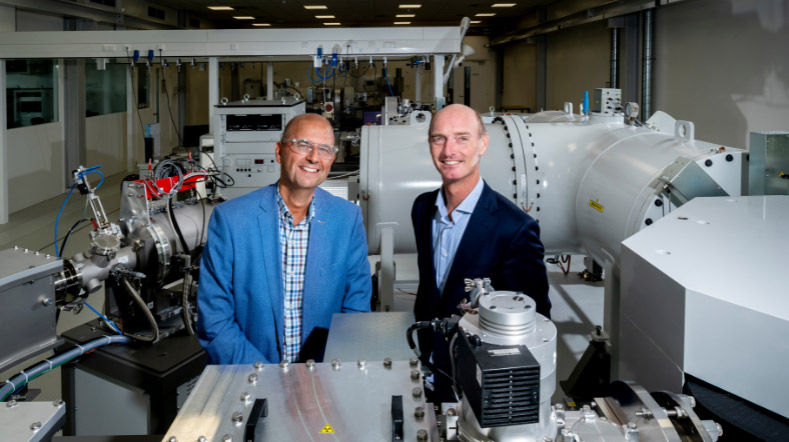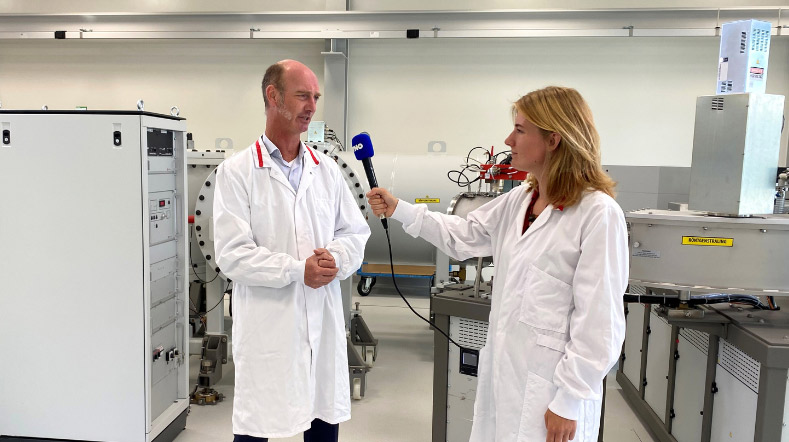
Organ-on-a-Chip offers more accurate preclinical studies
How can we accelerate and improve drug development? By improving the methodologies we use along the way. While simplified cell-based and animal studies are currently the standard for preclinical trials, they are simply not good enough. After all, clinical trials often fail because preclinical trials were not able to properly predict drug behaviour, safety, or efficacy. TNO’s Organ-on-a-Chip (OoC) technologies offer a better solution. We use human cells or tissue for faster, more accurate results.
Fewer animals, more humans
Pharma and biotech companies understand the limitations of animal testing. Although they can provide initial indications of drug interactions or efficacy, clinical results often do not match the results obtained from preclinical studies. With ethical questions related to animal testing driving the industry to search for better solutions, OoC can be a viable alternative. It accurately mimics human organ functionalities to predict absorption, distribution, metabolism and excretion (ADME) and/or efficacy of medical compounds in preclinical phase, and moreover provide deeper insights into how interventions can impact human health.
Modelling human systems
TNO has translational preclinical modelling platforms for a variety of human organs. The two most robust are Liver-on-a-Chip (LoC) (pdf) and Gut-on-a-Chip (GoC) (pdf). Because of TNO’s extensive knowledge about the mechanisms and underlying biology of these two systems, we focused our initial OoC research on them.
LoC is available to study the effect of intervention on a variety of liver diseases. And GoC offers deeper insight into the complex workings of the human gut. Both platforms can offer medium- to high-throughput investigation of compound variations and relevant variables in effective interventions in the liver and gut.
TNO also uncovered the keys to modelling other organs, such as kidneys, lungs and skin. The next step will be to combine these technologies in a microfluidic system that models the entire ADME process from start to finish.
Making OoC Scalable
Although OoC technology is widely accepted as an effective tool for drug development and screening, the technology must be adapted to work effectively in standard pharmaceutical workflows and accommodate large-scale drug development.
In a powerful collaboration, TNO is combining its OoC expertise with TNO at Holst Centre’s expertise in flexible electronics and large-area manufacturing techniques. Together, they aim to realise OoC modules integrated into a smart, 96-well plate format that can seamlessly enable high-throughput screening and follow standard pharmaceutical workflows.
Biology at its core
The key to OoC’s success and accuracy is TNO’s focus on biology. Our extensive knowledge about the workings of the human body helps us focus our solutions on the biological mechanisms that matter most. By putting biology first, we can develop technology that addresses those specific mechanisms. This results in directly applicable technology that is effective and fit-for-purpose. We collect robust data that are analysed based on histology, biochemistry and other underlying biological systems. We apply our expertise to make sense of the data and offer useable insights that lead to faster, more accurate development.
The road towards personalised medicine
Today, our OoC technologies enable faster, more effective predictive models of the effect of medical interventions. This can help stratify and streamline clinical trials and accelerate drug efficacy studies. OoC technologies can also offer realistic steps towards personalised medicine and population-specific interventions. By utilising human tissue, advanced disease induction capabilities and stem-cell-based organoids, TNO aims to help developers more swiftly and accurately mimic the conditions their compounds are intended to address, and also identify the variables that may cause non-responsiveness in certain patient populations.
Find out more
Want to accelerate your drug development? TNO is offering its OoC technologies on a fee-for-service basis, but is also interested in partnering with stakeholders to further develop the technology. Because the only way to reduce the use of animal models and accelerate development is to offer a better way. With OoC, that way is clear.
Get inspired
Preclinical ADME


TNO launches Peregrion to boost market impact of its technology that accelerates medicine development


PPP uncovers new insights into MASLD development


Translational preclinical efficacy models


Time setters: reduce long waits for new medication with AMS











